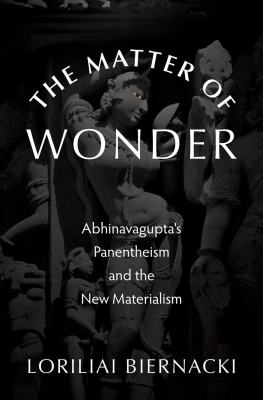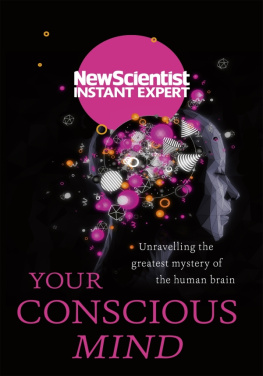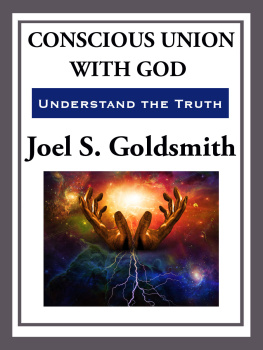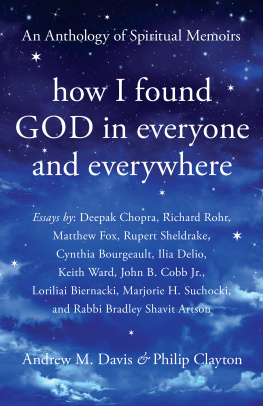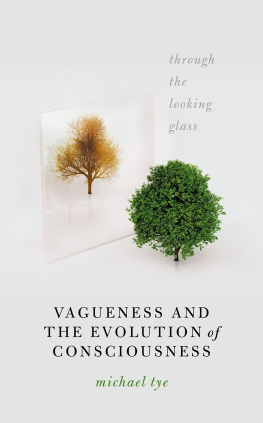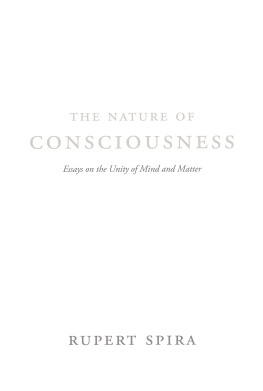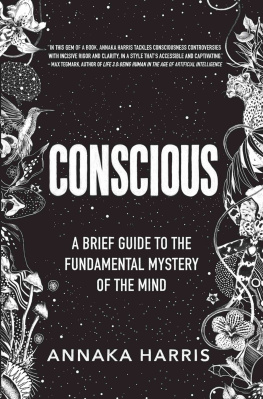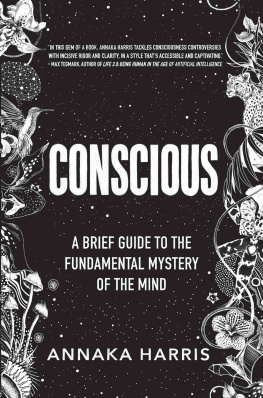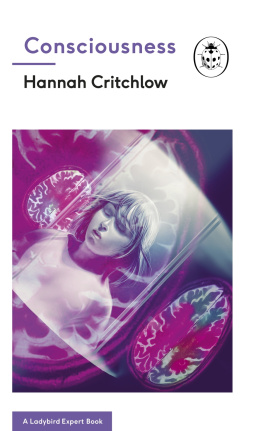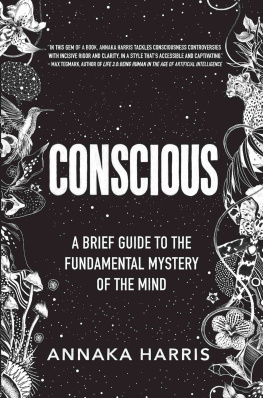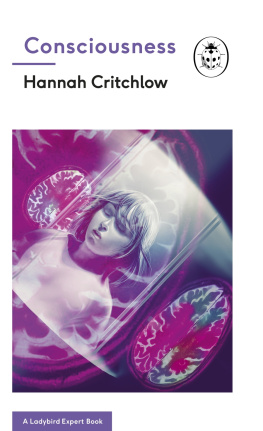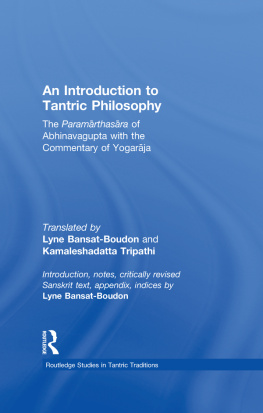The Matter of Wonder

Oxford University Press is a department of the University of Oxford. It furthers the Universitys objective of excellence in research, scholarship, and education by publishing worldwide. Oxford is a registered trade mark of Oxford University Press in the UK and certain other countries.
Published in the United States of America by Oxford University Press
198 Madison Avenue, New York, NY 10016, United States of America.
Oxford University Press 2023
All rights reserved. No part of this publication may be reproduced, stored in a retrieval system, or transmitted, in any form or by any means, without the prior permission in writing of Oxford University Press, or as expressly permitted by law, by license, or under terms agreed with the appropriate reproduction rights organization. Inquiries concerning reproduction outside the scope of the above should be sent to the Rights Department, Oxford University Press, at the address above.
You must not circulate this work in any other form and you must impose this same condition on any acquirer.
Library of Congress Cataloging-in-Publication Data
Names: Biernacki, Loriliai, author.
Title: The matter of wonder : Abhinavaguptas panentheism and
the new materialism /Loriliai Biernacki.
Description: New York : Oxford University Press, 2023. |
Includes bibliographical references and index.
Identifiers: LCCN 2022040694 (print) | LCCN 2022040695 (ebook) |
ISBN 9780197643075 (hardback) | ISBN 9780197643099 (epub)
Subjects: LCSH: Abhinavagupta, Rajanaka. | MaterialismReligious aspectsHinduism. |
Kashmir Saivism. | Panentheism.
Classification: LCC B133.A354 B54 2023 (print) | LCC B133.A354 (ebook) |
DDC 294.5/2dc23/eng/20221021
LC record available at https://lccn.loc.gov/2022040694
LC ebook record available at https://lccn.loc.gov/2022040695
DOI: 10.1093/oso/9780197643075.001.0001
For Mary Biernacki and Ivan Biernacki, my mother and father, and for John Shanks.
Acknowledgments
Every book is really the product of many minds fermenting the ideas that come forth. Here I would particularly like to express my gratitude to Sthaneshwar Timalsina for his thoughtful conversations, Fred Smith for his deep knowledge, and David Lawrence for his insight. Much appreciation to Mike Murphy, Jeff Kripal, and Catherine Keller for encouraging me to think outside the box. Also thanks go to Vasudha Narayanan, for her encouragement, Greg Shaw, Bill Barnard, Glen Hayes, John Nemec, Karen Pechilis and NBs Carol Anderson, Whitney Sanford, Robin Rinehart, Corinne Dempsey, Rebecca Manring, Phyllis Herman, and Nancy Martin. A special thanks to Ramdas Lamb for his inspiration. Thanks go also to my colleagues at the University of Colorado, especially Susan Kent and Terry Kleeman and my students there, particularly James Batten. Particular thanks also to John Lauer and Radhika Miles and Trupti Manina for her work on the cover. Also, thanks go to Cynthia Read at Oxford University Press and to Theo Calderara and the team there in the production of the book. I want to thank also my parents Mary and Ivan Biernacki, and especially my thanks go to John Shanks for his loving patience and support through the process.
Contents
I bow to him who pierces through and pervades with his own essence this whole, from top to bottom, and makes this whole world to consist of iva, himself.
Abhinavagupta
We may someday have to enlarge the scope of what we mean by a who.
John Archibald Wheeler
Even down to a wormwhen they do their own deeds, that which is to be done first stirs in the heart.
Abhinavagupta
If thou best born to strange sights, Things invisible to see, Ride ten thousand days and nights, Till age snow white hairs on thee, Thou, when thou returnst, wilt tell me, All strange wonders that befell thee
John Donne
His panentheism proposed an answer to a familiar conundrum, one we still grapple with todaythat is: consciousness is so unlike matter; how does it actually connect to the materiality of our world? To put this question in more familiar 21st-century terms, how does mind connect to body? This particular question drives the comparative impetus for this book.
Abhinavagupta
A towering figure in Indias philosophical landscape, influential far beyond the boundaries of his native Kashmir in the thousand years since his death, Abhinavagupta wrote extensively on Tantra, an innovative religious movement that began in India in the first half of the first millennium. Keen in its psychological comprehension, his acute sensibility of how the mind works can help us navigate our own contemporary engagement with the matter all around us.
My Argument
Particularly for a New Materialism, I propose that Abhinavaguptas articulation of panentheism, centered around a foundational subjectivity, gives us a first-person perspective that may offer a helpful intervention for our world today as we rethink our own relationship to matter, to the natural world around us, other humans and nonhumans, and the rapidly disappearing insects and worms that cross our paths. Abhinavaguptas panentheism postulates a single reality, iva, which unfolds out of itself the wonderful diversity of our world. He tells us that
the category called iva is itself the body of all things. On the wall [of the world which is itself iva] the picture of all beings appears, shining forthThis statement indicates the way that all these appear.
His panentheism aims to keep our sights on the world, with all its matter and multiplicity, as real. A tricky endeavor for a singular reality, iva, a nondualism. We find consciousness at the heart of matter. Rethinking the boundaries of life, matter, and consciousness, his strategy offers a way to think through materiality, for a New Materialism in particular, compelling in its decentering of the human.
I focus on key elements of Abhinavaguptas panentheism to address central issues for a New Materialism. First, his use of wonder (camatkra), I propose, serves to alter our vision of matter, pointing to its essential liveliness. Moreover, it reinscribes transcendence within a bodily subjectivity. Second, I suggest his use of the term vimara, a kind of active awareness, can help us think through how we get the idea of sentience, that is, to think through the relationship between what is living and what is not. Third, I propose that he uses his inherited cosmological map of what there is (familiar to students of India as the tattva system) to map phenomenologically how this originary consciousness, iva, progressively transforms its original subjectivity in stages to become objects, the materiality of earth and water that make up our world. Fourth, in addition, I suggest that he draws on the tattva system to chart how we get the many out of the One. Fifth, I propose that we may read the theology he gives us of the subtle body as a way of affording intentionality to the affective processes of the body, outside of human egoic intentions.
Finally, I propose that Abhinavaguptas strategy for connecting consciousness to materiality can instruct our own centurys adoptions of panpsychism and dual-aspect monisms, models that contemporary philosophers and scientists use to solve the problem of how life and consciousness relate to mere matterparticularly in terms of our current enthusiasm for ideas of information. In this, I use Abhinavaguptas philosophy to address issues relevant for us today, and I do so comparatively, drawing on our own current cultural preoccupations to frame his panentheism. In sum, I argue that Abhinavaguptas panentheism is too important a resource to not be used in our current construction of our world, particularly in the face of our rapidly increasing capacity to manipulate matterand, indeed, in view of the consequent ecological results.

